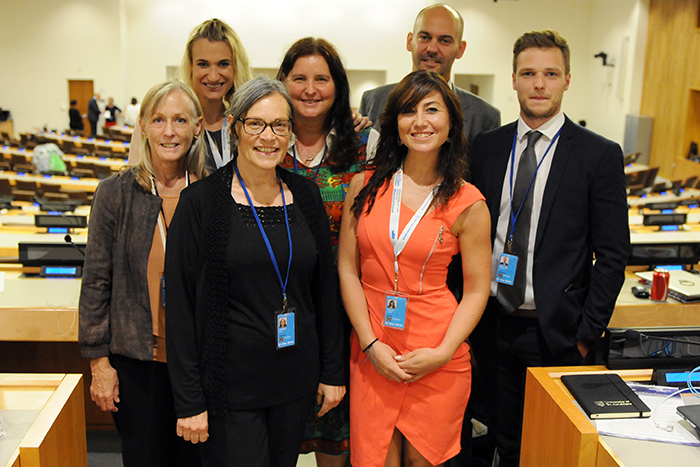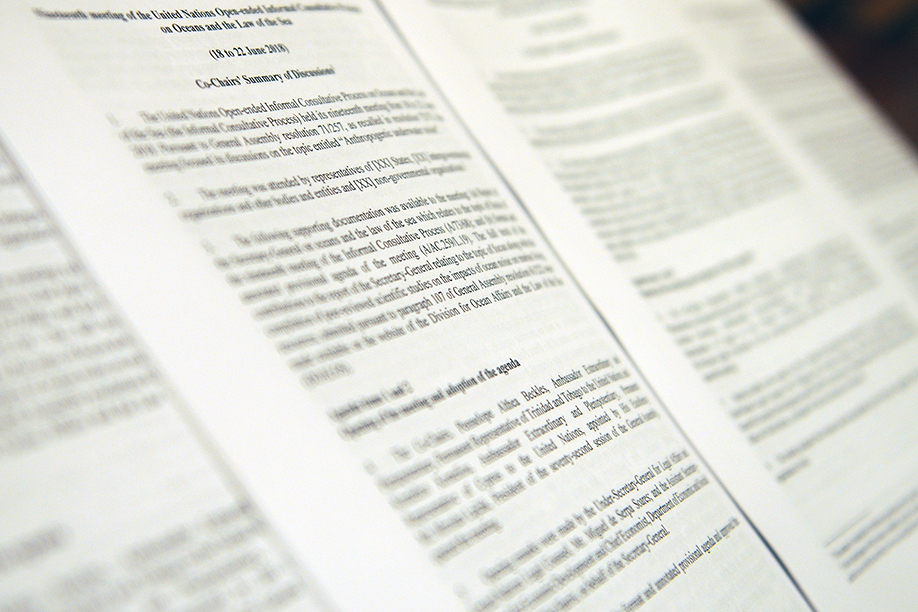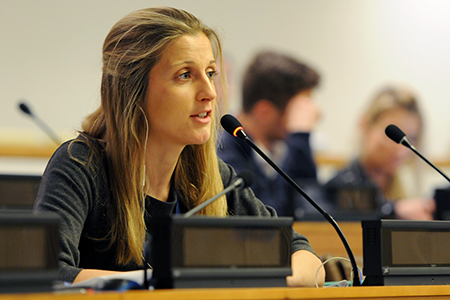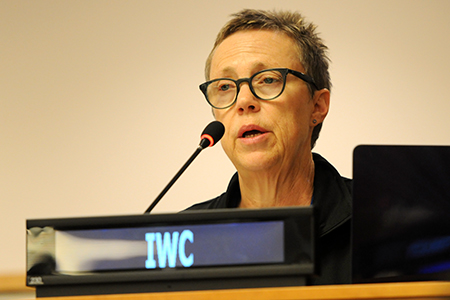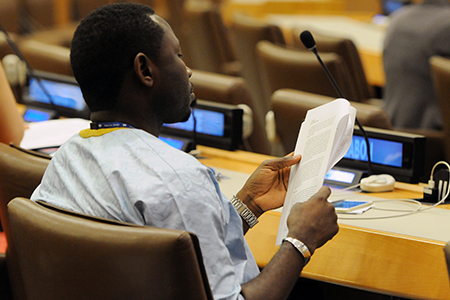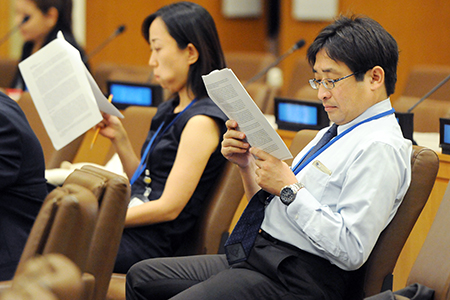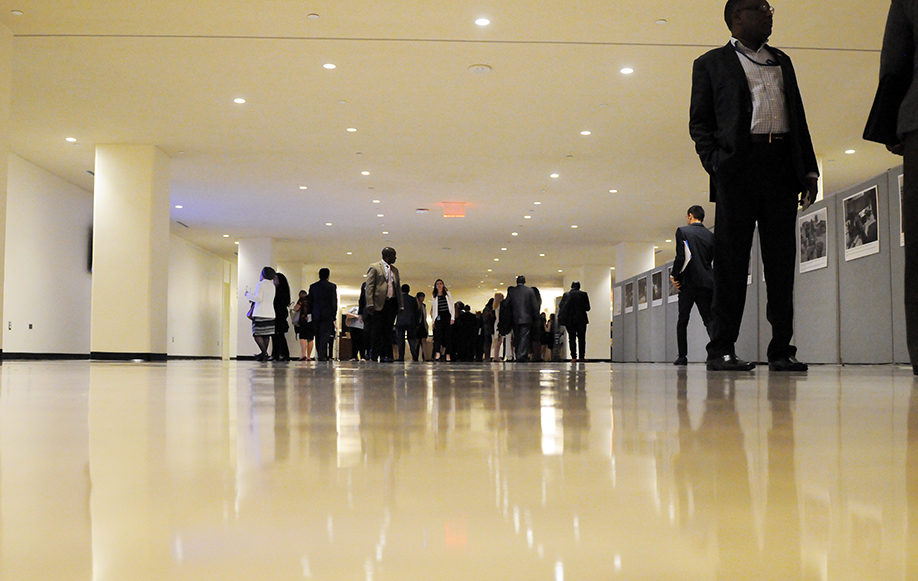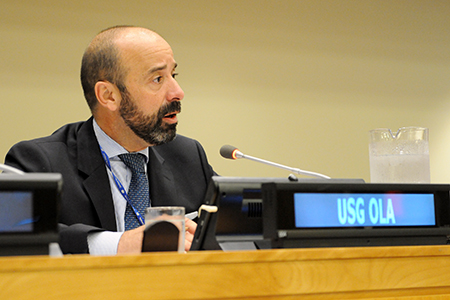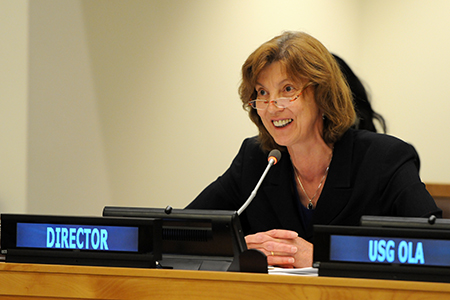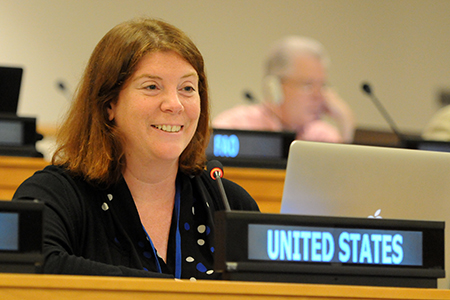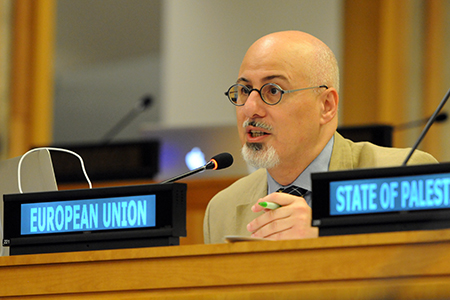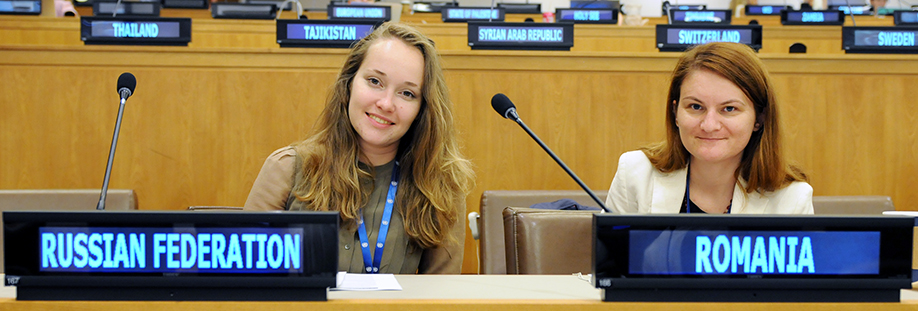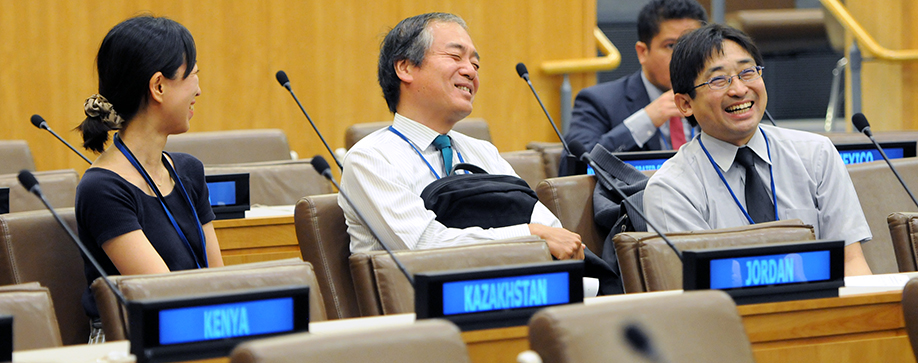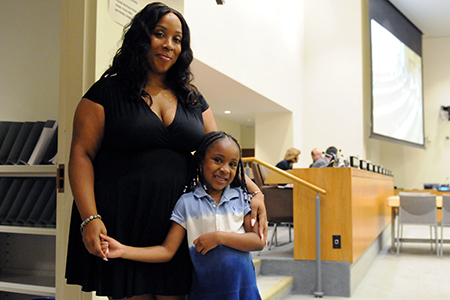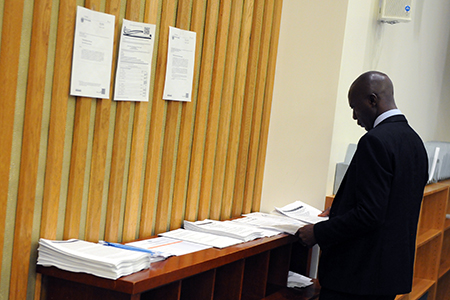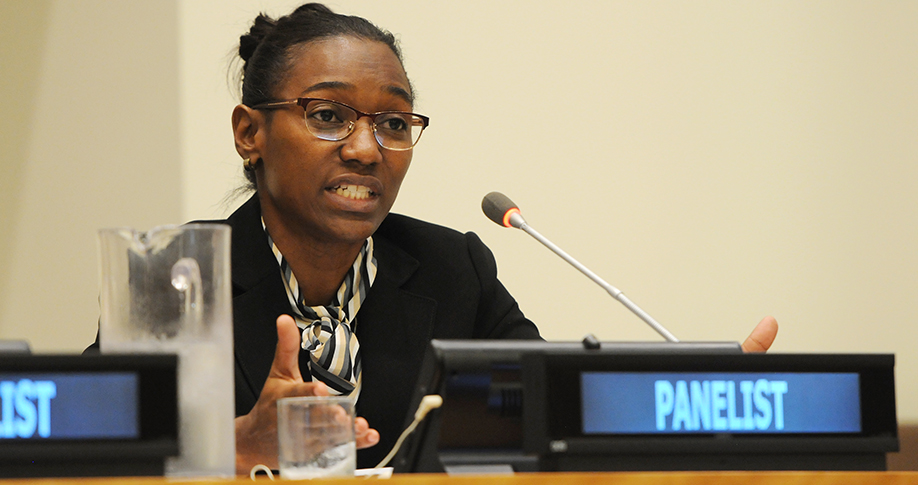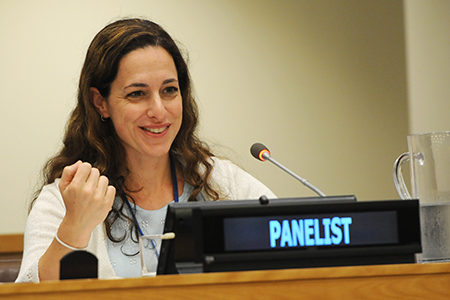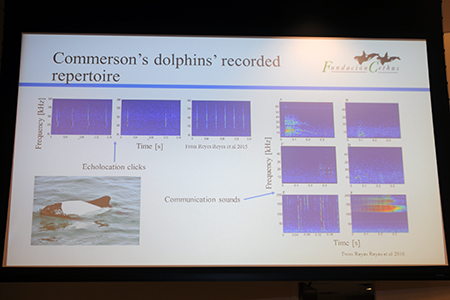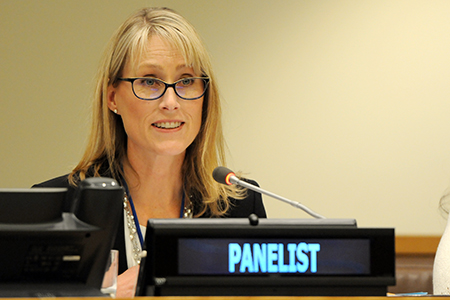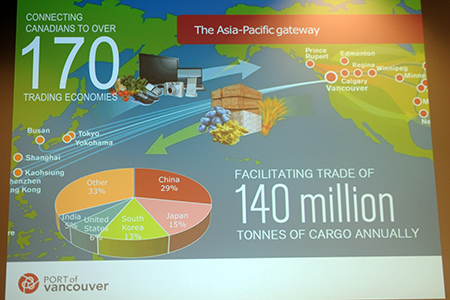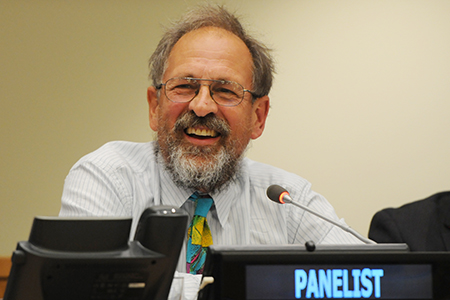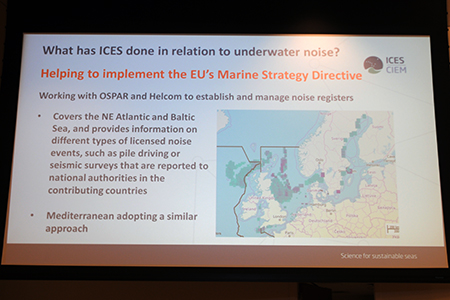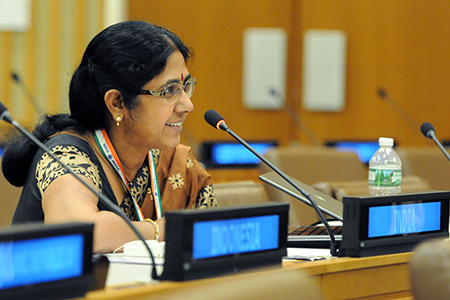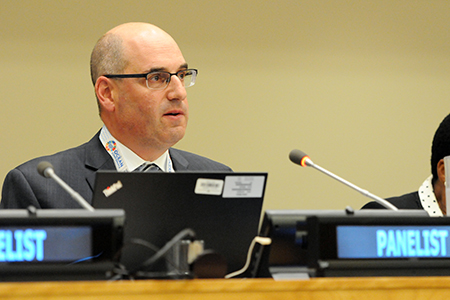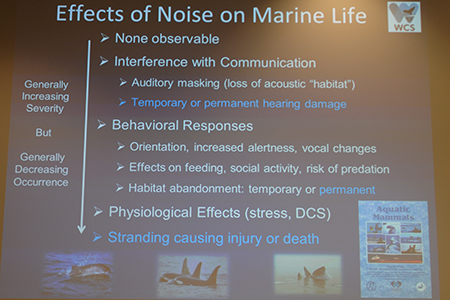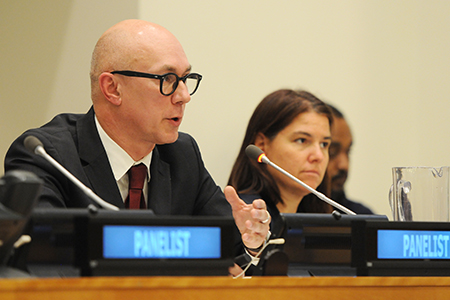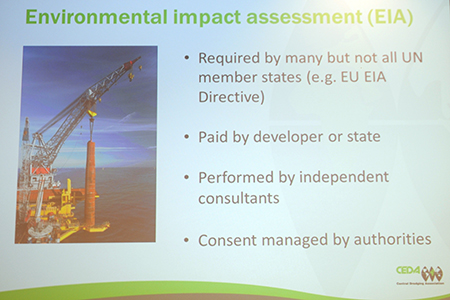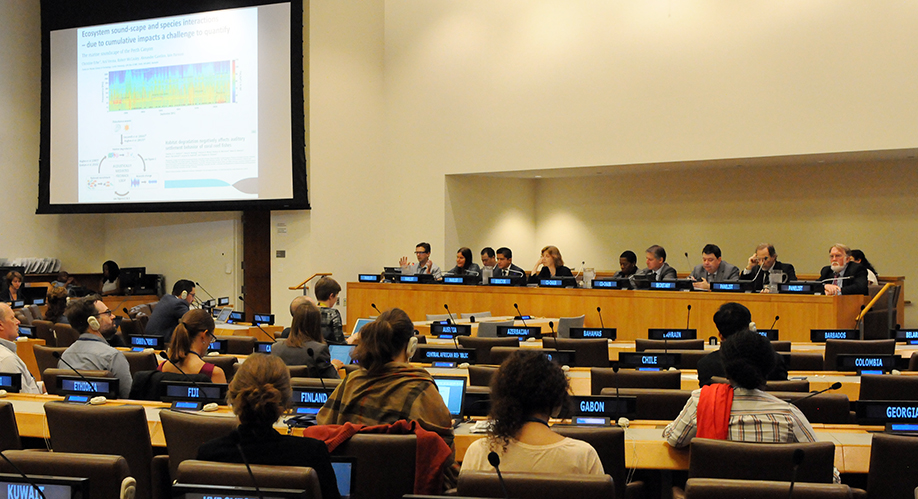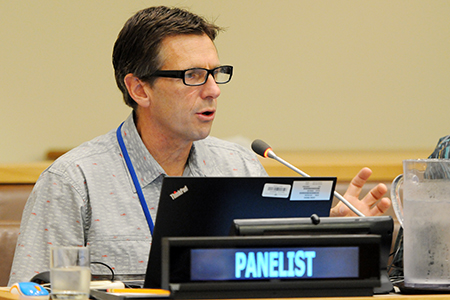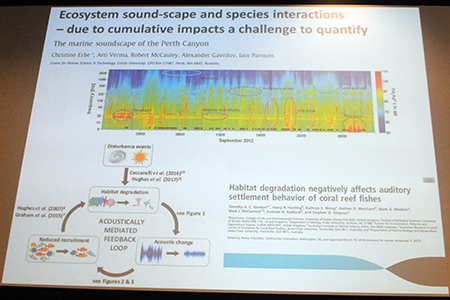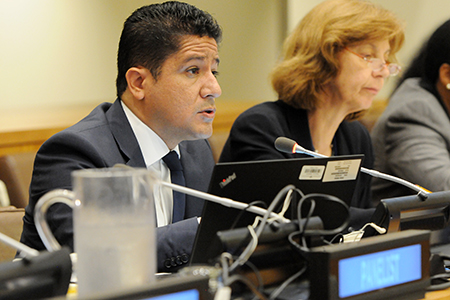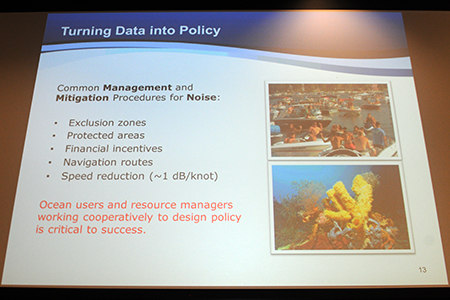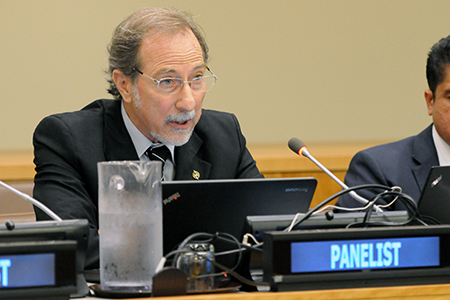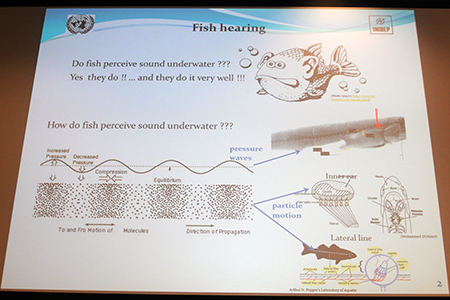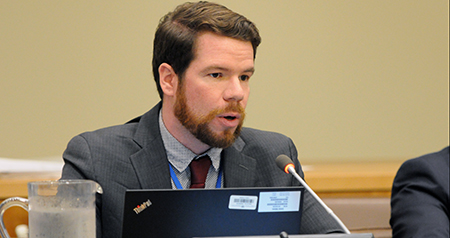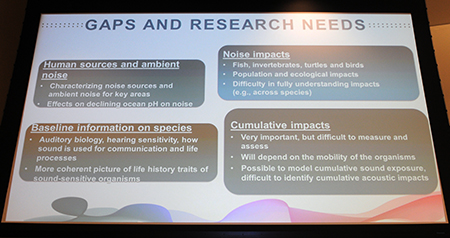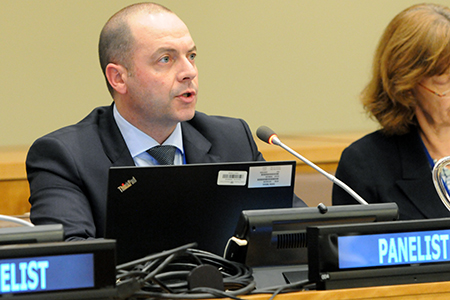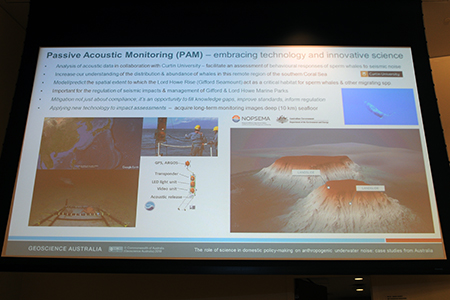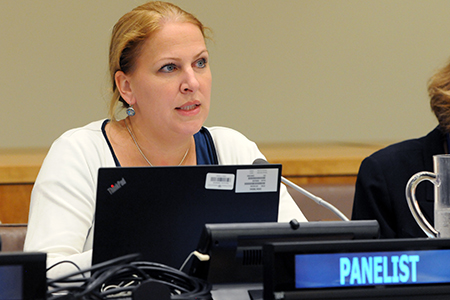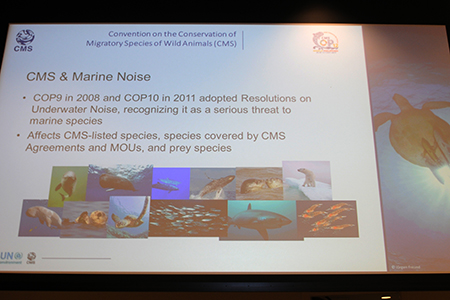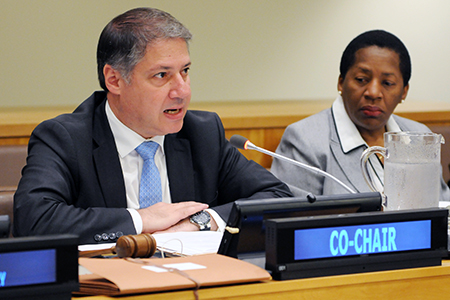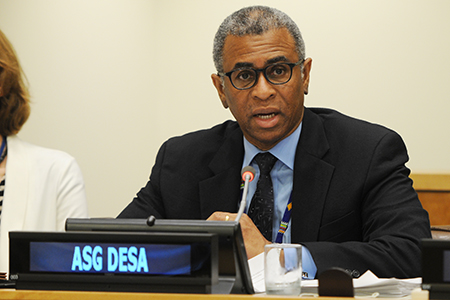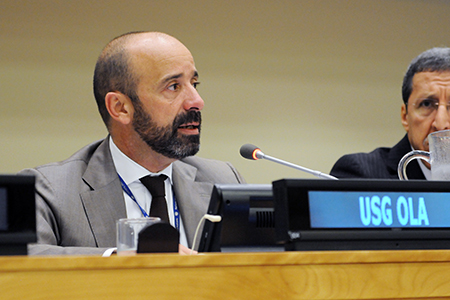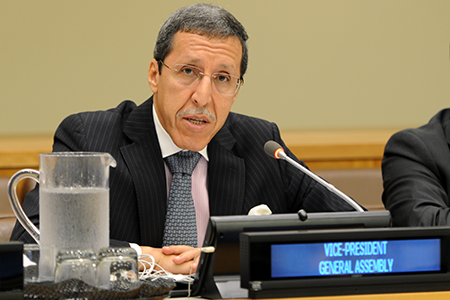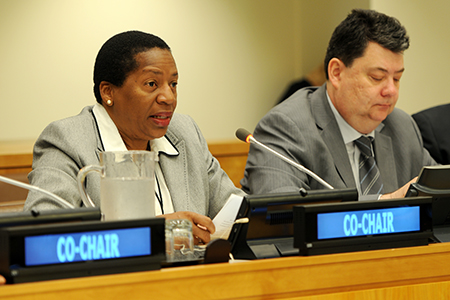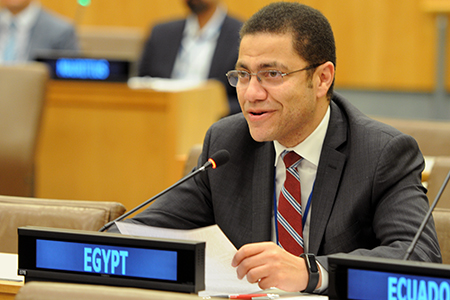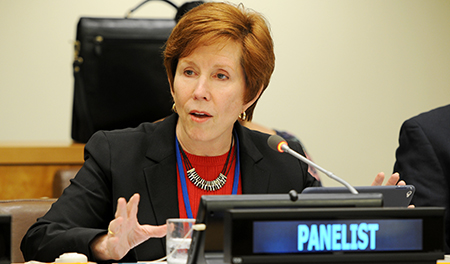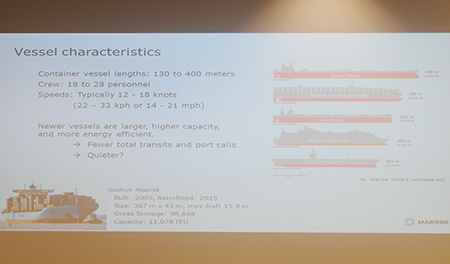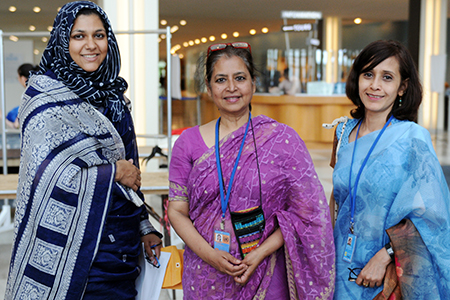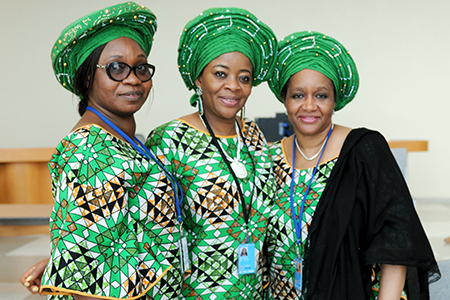| | |
|
On Friday, delegates to the nineteenth meeting of the UN Open-ended Informal Consultative Process on Oceans and the Law of the Sea (ICP-19) completed their work.
In the morning, delegations were given an opportunity to review the Co-Chairs’ draft summary of the week’s discussions. Plenary then reconvened for a page-by-page review. Delegates discussed the draft and suggested corrections and clarifications to best capture discussions.
Key points from the summary included:
- Importance of addressing socioeconomic impacts on sectors such as tourism, fishing and transportation, among others;
- Gaps in knowledge and lack of data on sources and impacts of anthropogenic underwater noise;
- Anthropogenic underwater noise as a form of pollution and links with other drivers such as ocean acidification;
- Management approaches highlighted by delegates, including area-based management tools and Environmental Impact Assessments; and
- Suggestions that the UN General Assembly in a resolution could characterize anthropogenic underwater noise as a form of transboundary pollution to be mitigated and addressed.
The Co-Chairs thanked delegates for their participation in discussions over the course of the week and Co-Chair Beckles closed ICP-19.
A side-event titled, “The International Nitrogen Management System: A New Science-Policy Initiative to Reduce Nitrogen Pollution,” was hosted by the United Nations Environment Programme.
|
|
|
IISD Reporting Services, through its Earth Negotiations Bulletin (ENB) Meeting Coverage, provided daily digital coverage from the 19th Meeting of the UN Open-ended Informal Consultative Process on Oceans and the Law of the Sea. In addition IISD Reporting Services has published a summary and analysis report from the meeting, which is available in HTML and PDF.
Photos by IISD/ENB | Diego Noguera
For photo reprint permissions, please follow instructions at our Attribution Regulations for Meeting Photo Usage Page
+ Visit the web coverage for Friday, 22 June 2018
| |
| | |
| | |
|
On Thursday morning, delegates at the United Nations Open-ended Informal Consultative Process on Oceans and the Law of the Sea (ICP-19) resumed discussions.
On inter-agency cooperation and coordination, delegates heard from Miguel de Serpa Soares, Under-Secretary-General for Legal Affairs and UN Counsel, in his capacity as the UN-Oceans Focal Point, on progress of work under UN-Oceans. He highlighted the UN-Oceans voluntary commitment process, launched at the 2017 Ocean Conference, to raise awareness of relevant regulatory and policy frameworks and members activities for conserving and sustainably using oceans and their resources and advancing work under Sustainable Development Goal (SDG) 14. Delegates briefly discussed issues related to development of the SDG 14 indicators.
Delegates also received an update on the financial status of the Voluntary Trust Fund from UNDOALOS Director Gabriele Goettsche-Wanli who reiterated the need for replenishment of the Fund.
Delegates completed the general exchange of views that began on Monday morning before considering the process for the selection of topics and panelists, and issues that could benefit from further consideration under the UN General Assembly on ocean affairs and the Law of the Sea.
The meeting then adjourned to provide time for the Co-Chairs and Secretariat to prepare the draft Co-Chairs’ summary to be reviewed by delegates on Friday.
|
|
|
+ Visit the web coverage for Thursday, 21 June 2018
| |
| | |
| | |
|
The nineteenth meeting of the United Nations Open-ended Informal Consultative Process on Oceans and the Law of the Sea (ICP-19) resumed on Wednesday, 20 June 2018, at UN Headquarters in New York. In morning and afternoon sessions, panel discussions continued to focus on cooperation and coordination in addressing anthropogenic underwater noise.
In the morning session, panelists presented information on collaborative approaches to underwater noise, including on:
- EU regional strategies, including its Marine Strategy Framework Directive (MSFD), which has “human-induced marine underwater noise” as part of a pollution definition;
- The Impulsive Noise Registry by the Commission on the Convention for the Protection of the Marine Environment of the North-East Atlantic (OSPAR);
- Addressing anthropogenic underwater noise through other relevant processes in the absence of specific national legislation;
- A collaborative approach to assess vessel-noise impacts on Commerson’s dolphins in the Argentine Sea; and
- A voluntary vessel slowdown trial in Canada within the endangered southern resident killer whale feeding area.
In the afternoon session, key points from presentations included:
- A whale stranding event in Madagascar that helped identify gaps in knowledge, expertise, and legislation to investigate, evaluate or prevent noise pollution;
- The Green Marine independent certification program with 124 participating countries that establishes performance indicators;
- A review of key events and milestones for addressing ocean noise;
- The role of industry in managing the impacts of underwater noise on marine life; and
- The application of underwater sound for fish stock surveys.
During the lunch break, a side event, “Sonic Sea: Film screening and Q&A” was hosted by the International Fund for Animal Welfare (IFAW) and Natural Resources Defense Council (NRDC).
|
|
|
+ Visit the web coverage for Wednesday, 20 June 2018
| |
| | |
| | |
|
The nineteenth meeting of the United Nations Open-ended Informal Consultative Process on Oceans and the Law of the Sea (ICP-19) resumed on Tuesday, 19 June 2018, at UN Headquarters in New York. In morning and afternoon sessions, panel discussions continued to focus on sources and environmental and socioeconomic aspects of anthropogenic underwater noise. In the final afternoon panel, the session focused on cooperation and coordination among conventions and agencies in addressing anthropogenic underwater noise.
On impacts of underwater noise on marine fauna, key points included: the range of effects on different marine animals, with an emphasis on communication; cascading effects of noise on ecosystem and ecological services; the need for urgent action, even in the face of data gaps; cumulative impacts of underwater noise and other anthropogenic stressors; and the role of science in domestic policy-making.
On coordination and cooperation, presentation highlights included: guidelines on anthropogenic underwater noise developed by the Convention on the Conservation of Migratory Species (CMS) for use by governments conducting Environmental Impact Assessments; noise reduction benefits associated with the International Maritime Organization’s guidelines initially developed to protect seafarers; and the International Whaling Commission approach to addressing impacts.
During the lunch break, the Natural Resources Defense Council and OceanCare hosted a side event on “Managing Ocean Noise Pollution through the new BBNJ Instrument under the UN Convention on the Law of the Sea.”
|
|
|
+ Visit the web coverage for Tuesday, 19 June 2018
| |
| | |
| | |
|
The nineteenth meeting of the United Nations Open-ended Informal Consultative Process on Oceans and the Law of the Sea (ICP-19) opened on 18 June 2018 at the UN Headquarters in New York, under the theme, “Anthropogenic underwater noise.” Delegates heard opening remarks from: Co-Chair Kornelios Korneliou (Cyprus) and Pennelope Althea Beckles (Trinidad and Tobago); Miguel de Serpa Soares, UN Under-Secretary-General for Legal Affairs; Elliott Harris, Assistant Secretary-General UN Department of Economic and Social Affairs (UN DESA); and Omar Hilale, Permanent Representative of Morocco.
During the general exchange of views, delegates highlighted, inter alia:
- Impacts of underwater noise on marine biota;
- Capacity building for identifying, measuring and addressing underwater marine noise;
- Considering underwater noise as a form of marine pollution;
- Guidelines for reducing underwater marine noise, including consideration of International Maritime Organization (IMO) guidelines for commercial shipping;
- Relevance of the issue to achieving the Sustainable Development Goals (SDGs);
- Consideration of including ocean noise in the negotiations on the conservation and sustainable use of marine biodiversity of areas beyond national jurisdiction (BBNJ);
- Research and data gaps; and
- Application of the precautionary approach.
In the afternoon, the ICP focused on sources and environmental socioeconomic impacts of underwater marine noise. Five presentations provided overviews on sound and its propagation through water; sounds from submarine cables and pipeline operations; shipping as a source of noise; offshore energy development; and sonar imaging and ocean mapping.
During ensuing discussions, delegates highlighted the “win-win” link between energy-efficiency improvements for ships and noise reductions; standardization of survey methodologies; and selection of ecologically sensitive areas for prioritizing solutions.
During the afternoon break, delegates attended a side event on “The Role of Environmental Impact Assessments in Managing the Impacts of Noise on Marine Food Web and Higher Trophic Levels.”
|
|
|
+ Visit the web coverage for Monday, 18 June 2018
| |
| | |




